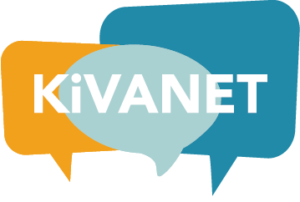| Organizing school | University of Eastern Finland |
| Language of instruction | English |
| Schedule | Course open in Moodle: 26.01.2026 – 24.5.2026 |
| Webinars | Schedule of voluntary online meetings:
|
| Exam on Moodle | Exam open in Moodle:
|
| CEFR-level | Starting level A1 > target level A1.2 |
| ECTS | 3 |
| Prerequisites | The course requires completion of KiVANET’s Russian 1 or equivalent proficiency in the Russian language (level A1.1). The objective is to attain level A1.2 of the Common European Framework of Reference for Languages (CEFR). |
Course description
Content and Course Objectives:
Students practice the communicative situations listed in the learning outcomes, along with the relevant vocabulary, phrases, and structures: adjectives and adverbs, the accusative case and the plural forms of nouns and adjectives.
After completing this course, the student will be able to apply what you have learned in written and oral communication and act according to the norms of Russian culture in ordinary transaction situations.
The student will learn to talk about themselves and their family, as well as hobbies and leisure activities. Additionally, the student will learn to describe the events of the week, handle border crossing situations, order a taxi, and deal with transactions in hotels, cafés, and restaurants. The student will also learn to have telephone conversations, ask about and discuss the weather, and go shopping.
The course develops the following generic skills:
language skills and multicultural competence; communication and interaction in a group; participation, action and interaction in digital environments.
Learning materials:
Material provided by the teacher or online resources in the eLearn Moodle learning platform.
Teaching and Assessment Methods:
Online teaching.
In this course, you will practice independently using texts, audio recordings, videos, and interactive exercises on the learning platform. The course includes optional online lessons. Assessment is based on submitted written and oral assignments as well as written and oral exams. Completing the course assignments, exercises, and exams is mandatory.
Assessment criteria
The exams are graded numerically on a scale of 0-5, with a minimum passing score of 50% of the maximum points.
Amount of work depending on modes of study:
Independent study: 30 hours
Assignments to be submitted: 34 hours
Joint online meetings or independent study of topics: 11 hours
Two written exams: 4 hours
Oral final exam: 2 hours
Total: 81 hours. One credit corresponds to 27 hours of student work (3 x 27 hours = 81 hours).
